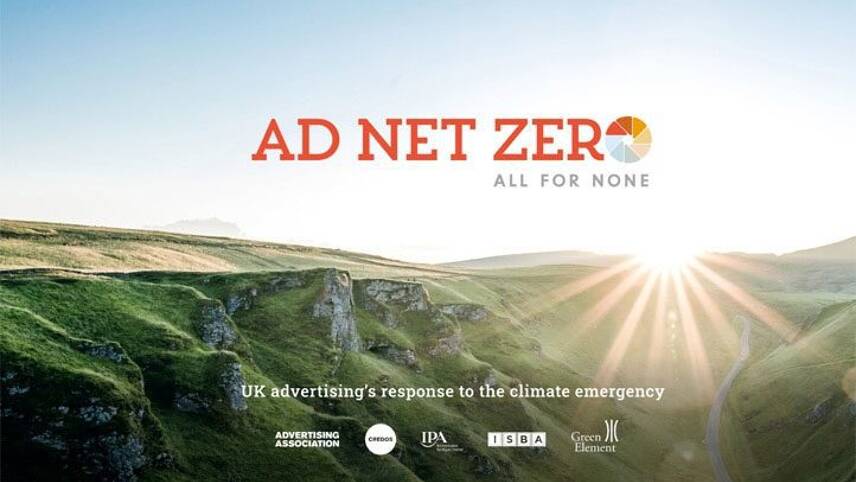Register for free and continue reading
Join our growing army of changemakers and get unlimited access to our premium content

The training will be available online to all ad professionals
Last year, trade body the Advertising Association has launched a collaborative initiative to support the UK’s advertising industry to reach net-zero within a decade.
Called Ad Net Zero, the scheme is being delivered as part of a partnership between the Association, IBSA and the Institute of Practitioners in Advertising (IPA).
It helps companies to adopt a five-point framework for reaching net-zero 20 years ahead of the UK Government’s national target, comprised by the Association’s Climate Working Action Group. Representatives from the likes of Unilever, The Guardian and Sky – which all have net-zero targets – sit on the Group.
The Ad Net Zero campaign will be launching its first training qualification for advertising professionals as part of a 2-day Global Summit in Glasgow to coincide with COP26.
The training will be available online to all ad professionals, in the UK and internationally, via the IPA’s CPD platform.
The campaign has also developed a Best Practice Guide for all businesses in the advertising supply chain to help track, measure and reduce their carbon emissions. The guide will be published at the Summit for everyone in the industry to access for free.
IPA’s director general Paul Bainsfair said: “To accelerate the system change we need to make right through the advertising supply chain, we have been working hard and fast to bring the industry’s first training qualification and Best Practice Guide to market. As we near the completion of the first year of a decade of essential change for our industry, these actions are central as we help everyone who works in advertising to focus the industry’s huge influence on promoting a more sustainable way of living.”
In May this year, the sector launched the AdGreen carbon calculator, which will enable organisations within the advertising industry to measure the carbon impact of their projects and to identify the highest carbon-producing activities free of charge.
The industry is introducing a new voluntary levy that sees advertisers contribute a small sum of the cost of production to cover the operation costs of AdGreen. Already, some of the most recognisable advertising agencies such as adam&eveDDB, Havas UK, Havas Studios and Mullen Lowe Group (representing IPG) have agreed to the levy, while corporates such as Unilever and Nestlé have also agreed to pay the levy in relation to their advertising.
These organisations have also joined the AdGreen advisory board to support members that are looking to become more sustainable. Already, more than 750 members have completed a free online training course aimed at educating those within the sector about climate-related risks through the context of the industry.
One of the major roles the sector will have is alleviating concerns of greenwash.
Experts have repeatedly claimed that greenwashing has become more common in recent years and that this trend will only accelerate in the coming years, as consumer and investor demands for sustainable products outpace corporate action. A recent survey of 1,000 people by Futerra found that most want to choose more eco-friendly options, but more than two-fifths think companies make it harder to do so, despite their sustainability commitments.
The International Consumer Protection Enforcement Network (ICPEN) hosts annual website “sweeps”, where brands are examined to remove potentially fraudulent, deceptive, or unfair online conduct.
The annual sweep of corporate websites has found that four in ten are providing information on environmental criteria that could be considered misleading and potentially breaking consumer laws.
Matt Mace


Please login or Register to leave a comment.